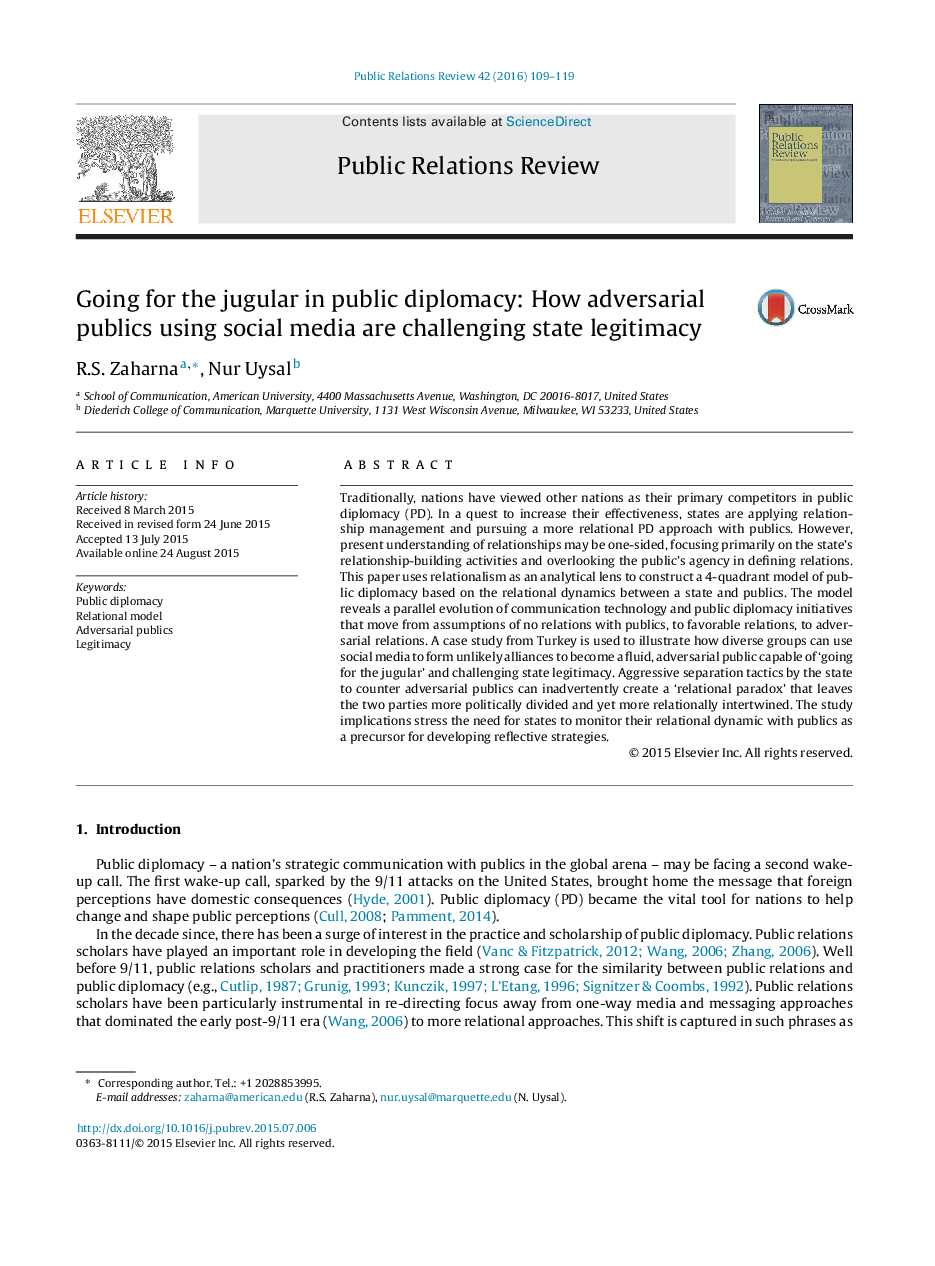| Article ID | Journal | Published Year | Pages | File Type |
|---|---|---|---|---|
| 138655 | Public Relations Review | 2016 | 11 Pages |
•Examines how social media affect relational power between nations and publics.•Presents 4-quadrant model of relational dynamics in public diplomacy.•Analyzes challenge of legitimacy to states by adversarial publics.•Illustrates “relational paradox” created by mass media era separation strategies.•Stresses need to assess relational dynamics in developing effective reflective strategy with adversarial publics.
Traditionally, nations have viewed other nations as their primary competitors in public diplomacy (PD). In a quest to increase their effectiveness, states are applying relationship management and pursuing a more relational PD approach with publics. However, present understanding of relationships may be one-sided, focusing primarily on the state's relationship-building activities and overlooking the public's agency in defining relations. This paper uses relationalism as an analytical lens to construct a 4-quadrant model of public diplomacy based on the relational dynamics between a state and publics. The model reveals a parallel evolution of communication technology and public diplomacy initiatives that move from assumptions of no relations with publics, to favorable relations, to adversarial relations. A case study from Turkey is used to illustrate how diverse groups can use social media to form unlikely alliances to become a fluid, adversarial public capable of ‘going for the jugular’ and challenging state legitimacy. Aggressive separation tactics by the state to counter adversarial publics can inadvertently create a ‘relational paradox’ that leaves the two parties more politically divided and yet more relationally intertwined. The study implications stress the need for states to monitor their relational dynamic with publics as a precursor for developing reflective strategies.
